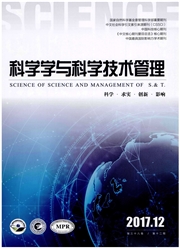

 中文摘要:
中文摘要:
针对传统企业竞争战略理论及其创新研究的不足,基于利益相关者理论及我国企业所面临的客观环境,对金融危机下我国企业进行战略创新的必要性、具体内涵及内在机理进行了系统、深入的研究。首先从理论和实践两方面论证了战略创新是新经济背景下中国企业的制胜之道之一。然后,系统探讨了金融危机下我国企业战略创新的具体内涵,即从战略高度对股东/投资人、员工、客户和竞争者之外的更广泛意义上的利益相关主体——政府和社会大众——加以考虑并将企业政府关系和企业社会责任有机整合到企业的整体竞争战略框架之中,从而实现二者与传统商品市场竞争战略间的有机整合。随后,深入剖析了前述战略创新的内在机理,即企业政府关系、企业社会责任与商品市场竞争战略间的静态匹配、动态调适与整体最优。
 英文摘要:
英文摘要:
The current financial crisis has been exerting significant impacts on various aspects of China society and necessitating managerial innovation,especially strategy innovation,in Chinese firms.Aiming at filling research gaps concerning competitive strategy and its innovation and based on stakeholder theory and the business environment Chinese firms are now facing,this paper probes into the necessity,connotation and essential mechanisms of Chinese firms' strategy innovation under financial crisis.Specifically,this paper first proposes that an important way for Chinese firms to compete under the financial crisis is to undertake strategy innovation.Then it studies systematically the connotation of strategy innovation and suggests that in new economic environment Chinese firms ought to strategically consider other stakeholders such as government and the public in addition to their shareholders /investors,employees,customers and competitors.After the connotation study,this paper investigates the essential mechanisms of strategy innovation,which means the static match,dynamic adjustment and configurational optimization of business-government relations,corporate social responsibility and traditional economic-market competitive strategy.This paper finally provides constructive suggestions for future research in this field.
 同期刊论文项目
同期刊论文项目
 同项目期刊论文
同项目期刊论文
 期刊信息
期刊信息
